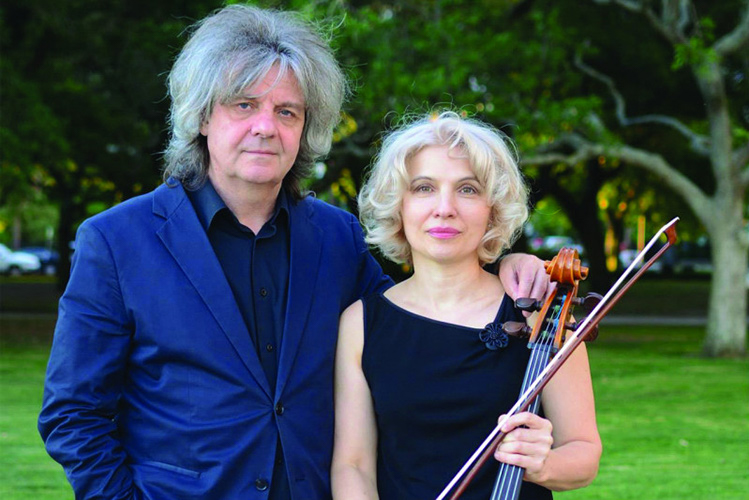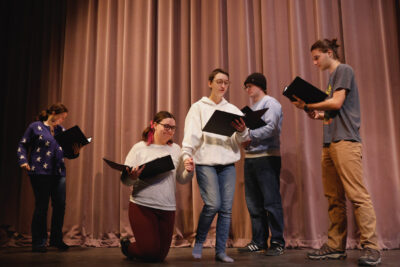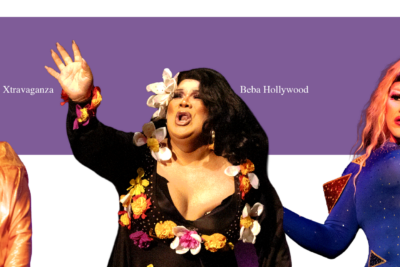Rieth Recital Hall was intimately packed in, the audience listening attentively. The music started, and with the first three chords, I was drawn in by the depth of feeling. Cellist Natalia Khoma and pianist Volodymyr Vynnytsky presented a rich recital on March 23rd that was expansive and expressive, painting pictures of stories past and present. Khoma and Vynnytsky told stories of sorrow, displacement and resilience, which was deeply felt by the audience, myself included.
Both Khoma and Vynnytsky hail from Lviv, Ukraine, and studied at the Moscow Conservatory. They hold extensive musical accolades and have performed and recorded music worldwide.The duo stated that, in choosing their program, they intentionally selected more serious and tragic music to reflect the current situation in Ukraine. This music was described by Vynnytsky as “full of power and drama,” which I heard in their expressive performance. Khoma stated that the music chosen for their recital was “profound” and also “tragic.” The day before performing in Goshen, the duo played this same program for a fundraising recital to a large Ukrainian community in Detroit.
The first half of the program was performed by Vynnytsky as a solo pianist, beginning with a short Prelude by Levko Revutsky, a Ukrainian composer, teacher, and activist. This piece was written in 1914 and composed in the Romantic style.
Dr. Matthew Hill, professor of piano and chair of the music department here at GC, said that Vynnytsky’s solo piano performance was “so incredibly lyrical.” Hill added, “You don’t hear this type of sound very often, and I’ve heard a lot of pianists.”
In the second half, Khoma joined Vynnytsky to play a duet titled “Sadness” by Mykola Lysenko. This piece is also referred to as “Sorrow,” which Khoma described as an elegy. Lysenko is a Ukrainian composer known widely for composing the lyrics to “Prayer for Ukraine,” which will be performed by the Goshen College Chamber Choir at Earthtones.
In their performance of this piece, I could feel the sorrow and genuine emotion that could be heard in their playing. To pair that feeling of sorrow and grief with music that is truly Ukrainian was very profound and moving.
The pair played Beethoven’s Variations in E-flat Major from Mozart’s Opera Die Zauberflöte. “Beethoven and Mozart, what a combination!” Khoma exclaimed, calling this music “profound,” and that “we hear both geniuses in this music.” Khoma and Vynnytsky described their love for this piece, speaking to the “elegance of Mozart infused with the drama of Beethoven.”
Khoma and Vynnytsky played the powerful Sonata No. 1 in E minor by Johannes Brahms, an essential piece in cello repertoire, as well as a more contemporary duet titled “Requieboros” by Catalan composer and cellist Gaspar Cassado. As a cellist who has played the Brahms sonata, I know the extreme technicality required to execute, and to add such raw emotion is a feat in and of itself. Khoma played with a genuine intensity and power that is difficult to achieve, but also very moving.
The duo ended the program with a fiery piece composed by Vynnytsky himself, titled “The Lost Tango.” Khoma stated that Vynnytsky often jokes about the title, saying, “I found it!”
I could feel the genuine emotion that Khoma and Vynnytsky poured through their instruments to the audience. Both showcased precision and mastery of technical skill, as well as an outpouring of expression and love for music and country, leaving a lasting impact. Ukraine was clearly in their hearts, and now is even more intimately in mine.


